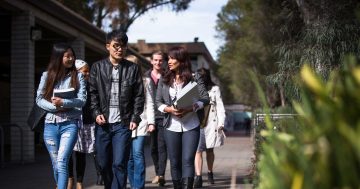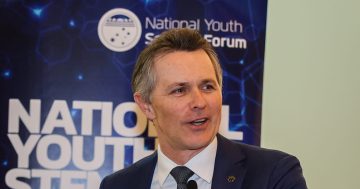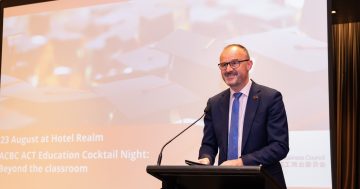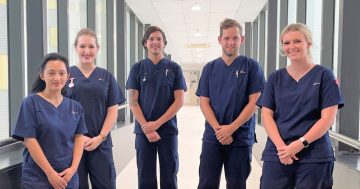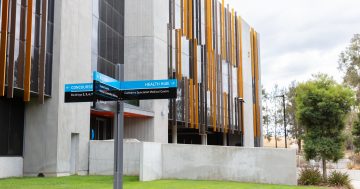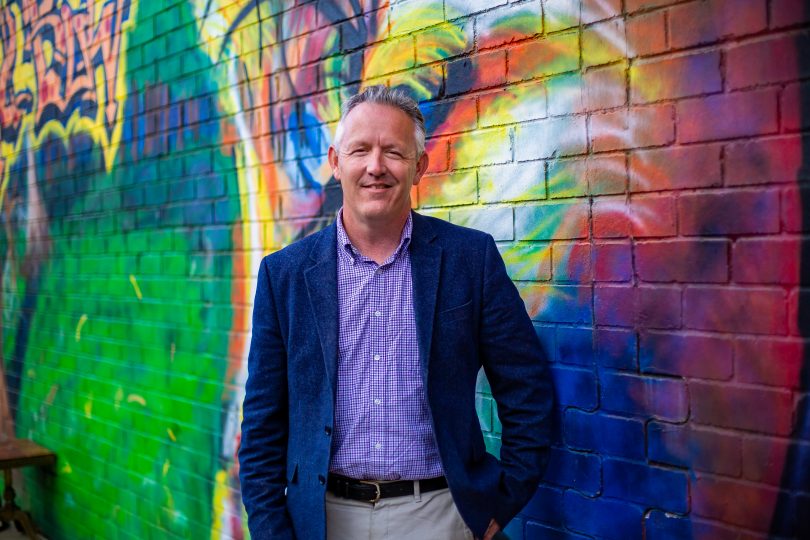
Member for Bean David Smith says that international students and visa holders may fall through the COVID-19 cracks. Photo: George Tsotsos.
The scale and scope of the COVID-19 crisis has left no one and no community untouched. We’ve seen a range of responses from governments, offering financial support to prevent people from falling into poverty from lost jobs or incomes.
On the whole, these responses have been appropriate and timely. The operation of the National Cabinet has allowed us a glimpse of a more cooperative federalism. Undoubtedly, jobs and livelihoods have been saved, ensuring that the damage from the COVID-19 crisis will be less than it would have been otherwise.
But certain sections of the economy and society have fallen through the cracks of the federal government’s strategy. Among those particularly affected are Australia’s temporary residents.
Australia is now home to the second-largest temporary migrant workforce in the world, behind the United States. There are 2.17 million people here on temporary visas, jumping from 1.8 million people over the last 4 years. Many are working and studying.
These people find themselves in a particularly precarious position as a group, at risk of damaging social and economic exclusion. With no pathway to economic or social support, these students and workers are being left behind.

Brendan Forde is an ACT Labor candidate for Brindabella. Photo: Supplied.
The situation of international students is particularly difficult. They constitute an important component of our economy. International education is the third-largest export industry in Australia.
In the 2018-2019 financial year, international education was worth $37.6 billion to the Australian economy. In the ACT, international education services are worth more than $1 billion a year, a figure that has doubled since 2013. The ambitious plans for the University of New South Wales campus in Reid rely heavily on attracting more international students.
On top of this, many jobs are directly dependent on this industry. Our universities have also benefited immensely from international education, enabling them to offer greater services and invest in a greater capacity to offer quality education. It has provided critical support to the research capabilities of our tertiary institutions.
Behind these numbers, we have the experiences of students who have chosen to study in Australia, not only for the quality of our education but also because of our reputation as a safe and secure democratic country. After studying at great expense, in some cases off the back of their whole community, they usually return home armed with an Australian education and exposure to the better part of our values.
But even before the beginning of this current crisis, many issues had arisen in international education. Among these was the failure to properly include international students in campus life, giving them a rich and full experience of university education.
In February this year, Andrew Giles MP warned against the “creeping normalisation of hate and racism in Australia”.
Yet we’ve found that these students have been particularly impacted by the gaps in the Federal Government response. The Prime Minister has advised: “If you are a visitor in this country, it is time … to make your way home”.
Yet this recommendation cannot be acted upon by many visa holders, including international students. The national borders are closed, or flights are simply unavailable. Where flights are available, they are prohibitively expensive. This situation effectively leaves students stranded here, relying heavily on local multicultural communities.
Added to this, an inability to find work leaves them in a precarious situation. State and Territory Governments are making some attempts to fill the gap. The ACT Government’s $20 million jobs plan gives priority to those in need who are ineligible for existing Federal Government support.
Ultimately, these students and workers have been entrusted to our collective care. We cannot respond to their concerns by asking them to leave and then expect that they will return once this crisis is over. This course of action endangers a critical part of our economy and the viability of our higher education sector. At stake is our sense of compassion and responsibility.
To protect our economy and look after these vulnerable students, we cannot be parsimonious with our generosity. And we need to revisit our reliance on a workforce that comes with diminished rights and protections. After all, we’re all in this together.
David Smith is the ALP Federal Member for Bean and Brendan Forde is an ACT Labor candidate for Brindabella.












